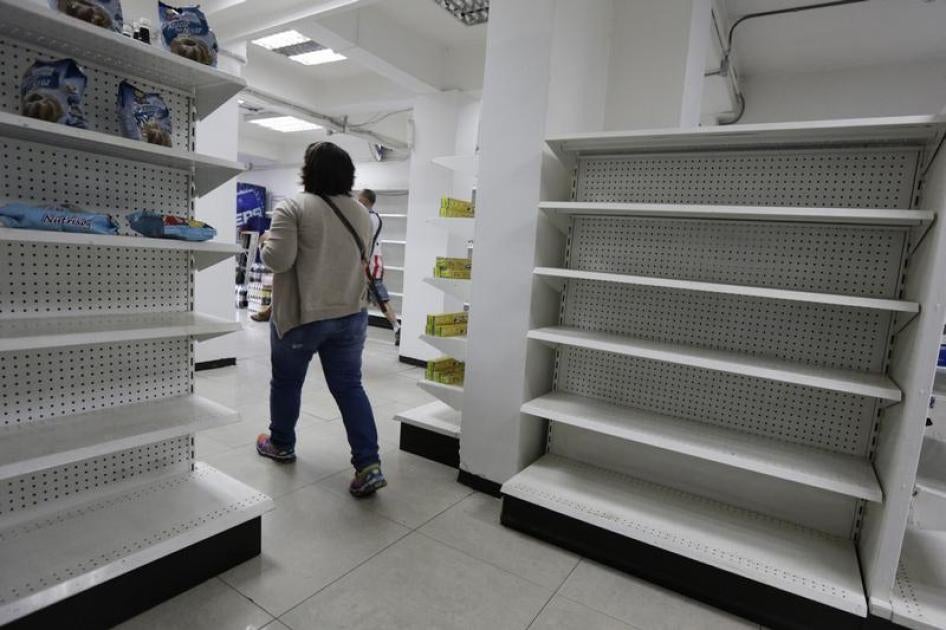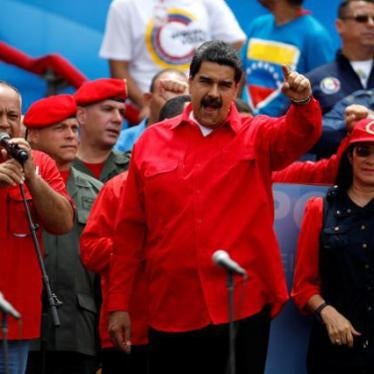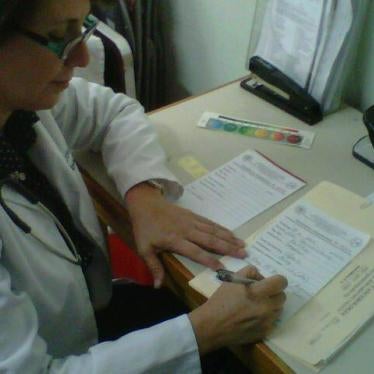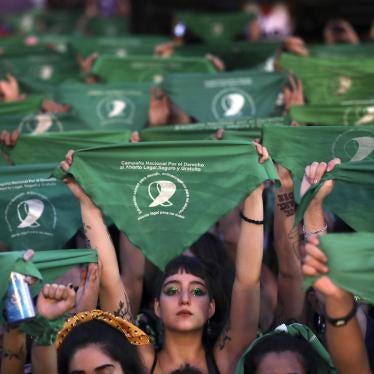Yelitza López’s greatest fear is to face a grave illness without pain relief. That fear is very real to her – López’s mother, Divisay, has advanced cancer and suffers from bouts of severe pain.
“I cannot watch her suffer,” she told Human Rights Watch in a phone interview in July. “When we run out, I’ll have to see if I can get any more… I am worried.”
Her worry is warranted. As Venezuela’s crisis has deepened, morphine and other opioid analgesics, like many other essential medicines, have mostly disappeared from pharmacy shelves. “The finance ministry refuses to release the funds needed to buy more morphine for the public healthcare system,” says Dr. Patricia Bonilla, the founder of the Venezuelan Society of Palliative Medicine and Divisay Lopez’s doctor. “We have run out.”
López still has a small amount of painkillers left thanks to Bonilla, who has been collecting leftover medications from families after loved ones died. But when she runs out, she does not know how she will help her mother when the pain attacks. “The pain leaves her completely incapacitated: unable to sit, stand, or eat.”
Thousands of other families in Venezuela are in a similar situation. In fact, many are probably worse of and have no access to morphine at all. More than 23,000 Venezuelans die of cancer every year; about 80 percent develop moderate to severe pain in the last few months of life. Many others have cancers that may be treatable but cause significant pain nonetheless.
Without adequate treatment, pain can ruin the quality of life of both patients and their loved ones. Human Rights Watch has interviewed patients with pain from a dozen countries who describe their suffering in a similar way to torture victims: the pain is unbearable and they would do anything to stop it. Many say that they see death as their only way out; some said they had become suicidal and a few actually tried to commit suicide.
Before the current crisis, Venezuela’s healthcare system boasted relatively strong palliative care services where morphine was readily available. With today’s acute shortages, however, Bonilla says her life has turned into a constant hunt for medication so her patients do not have to suffer. She says she is endlessly trying to come up with new, creative ways to get her patients morphine. Apart from collecting medications from patients who have died, she advises families to go to Colombia or other countries in the region or even to buy them on the black market – a risky proposition as one has no way of knowing whether the medication is real. She also actively tries to arrange for donations from palliative care physicians in Spain and elsewhere. “But you cannot just mail these medicines [as they are controlled substances]. Someone has to physically bring them across the border in their luggage.”
The extraordinary efforts of Bonilla and some of her colleagues have helped mitigate the plight of some patients. But thousands of others are not that lucky. The Venezuelan government should urgently step in and ensure morphine becomes available again so that the country’s cancer patients do not have to die in agony.










